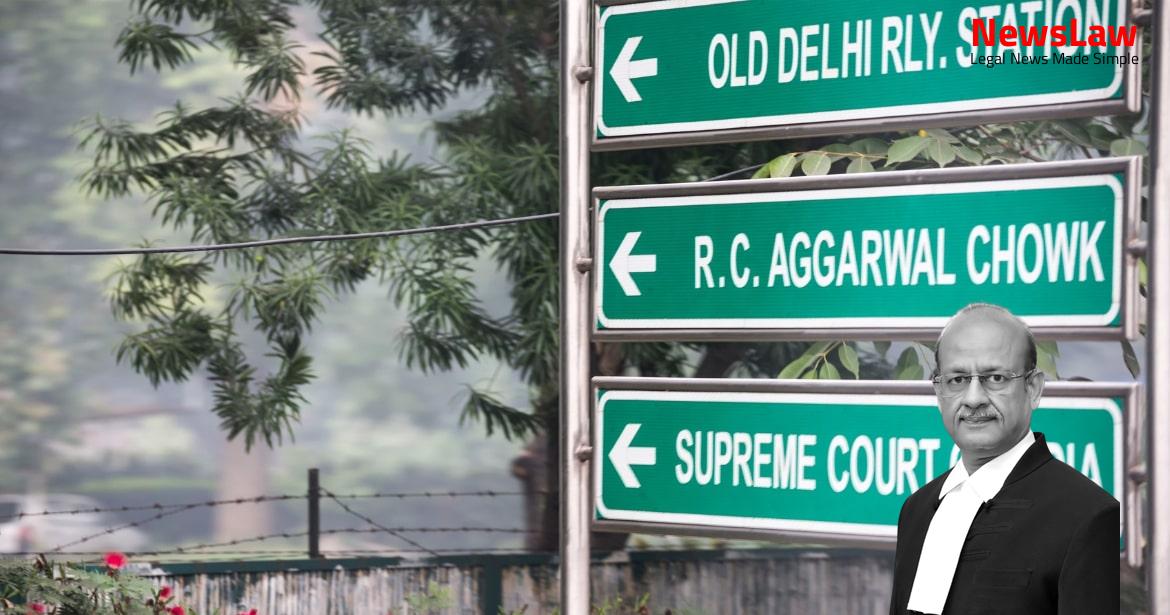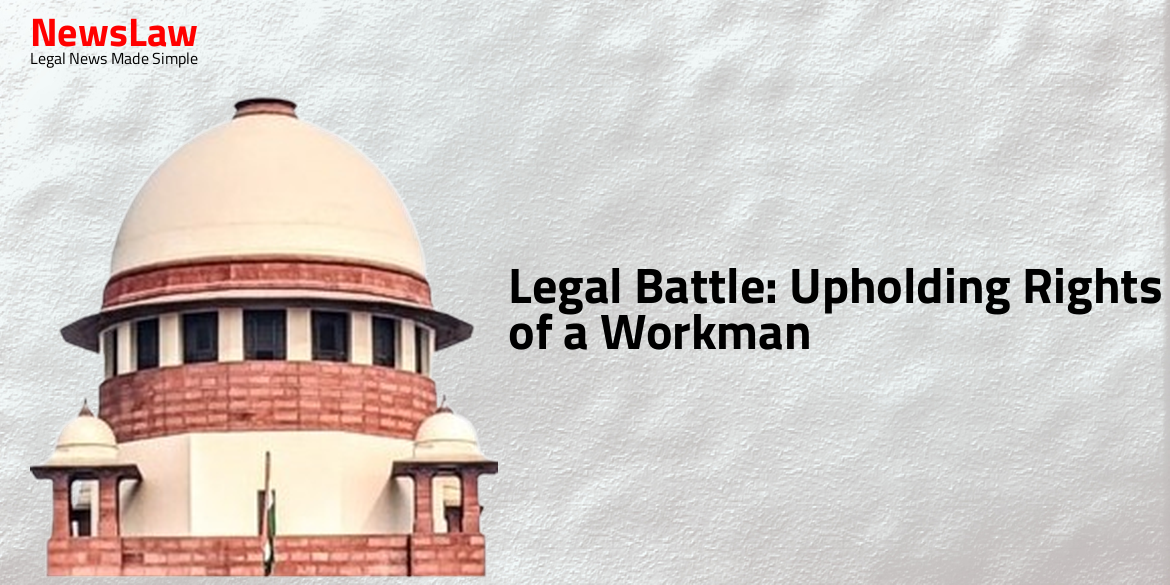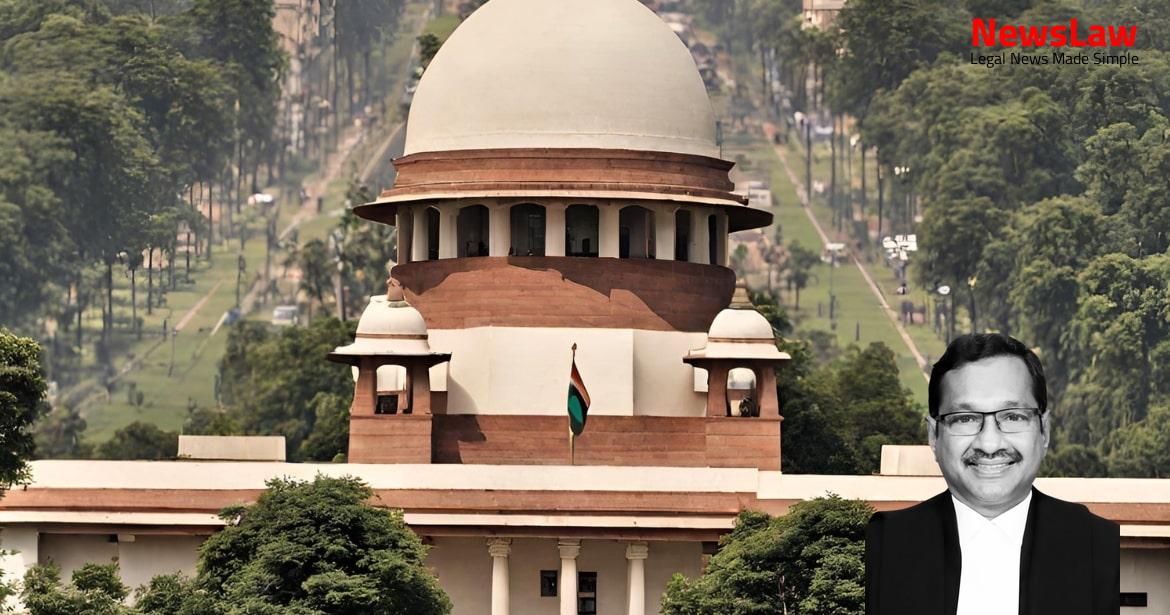Offer of contract appointment was issued on 22 July 2002 and the agreement was executed by the appellant on 14 August 2002.
Also Read: https://newslaw.in/case-type/criminal/legal-analysis-juvenile-justice-act-and-incarceration-period/
The offer dated 1 May 2007 records that respondent no.1 will be entitled to benefits of the Contributory Provident Fund Scheme (CPF) as per the rules of the appellant. The Tribunal held that 4 respondent no.1 was initially appointed as an Associate Professor through direct recruitment against a permanent post on a contract basis. The learned counsel further submitted that the Regularisation Rules under which the service of respondent no.1 was regularised clearly provided that all the academic staff members who were regularised under the Regularisation Rules will be entitled to benefit of pension only under the new pension scheme.
The learned counsel urged that respondent no.1 accepted the Regularisation Order dated 4 May 2012 which clearly provides that he can claim the benefit of only the new pension scheme. The learned counsel appearing for respondent no.1 in reply submitted that after respondent no.1’s employment was regularised, in view of clause 4 of Bye-law 52 of the National Institute of Rural Development (Service) Bye-laws (for short “the said Bye-laws”), respondent no.1 on regularisation of his service was entitled to opt for old pension scheme though earlier he had joined CPF scheme. He submitted that therefore, it cannot be said that respondent no.1 had voluntarily accepted conditions imposed in the order of regularisation.
Clause 5 of the Offer of Contract Appointment dated 1 May 2007 clearly recorded that respondent no.1 will be entitled to benefit of CPF.
Also Read: https://newslaw.in/case-type/criminal/consensual-relationship-and-misconception-of-consent/
However, past service rendered by these academic staff appointed on contract basis may be taken into consideration for their future promotions, if any, as per norms/ eligibility prescribed by the Institute for other academic staff appointed on regular basis, for this purpose, as made applicable from time to time, with the approval of competent authority. The exception carved out in Rule 6 provides that the main part of Rule 6 will not affect an employee initially appointed on a regular post who was presently holding a high academic post on a contract basis and who was subscribing to either CPF or GPF- cum-pension scheme of the appellant from the date of his initial regular appointment. Even assuming that the exception carved out is applicable 11 to the case of respondent no.1, the exception does not permit a change of option from CPF to GPF-cum-Pension Scheme (old pension scheme).
12 3) A person appointed to a post otherwise than on contract shall be eligible to be governed only by the Pension-cum-Gratuity-cum-Family Pension Scheme referred to in bye-law 48 and the General Provident Fund Scheme referred to in bye-law 49.
Where a person elects or is deemed to have elected the Pension-cum-Gratuity-cum-Family Pension Scheme and the General provident Fund 13 Scheme, he shall forego the Institute’s contribution to his contributory Provident Fund account together with interest thereon, which shall be paid back to the Institute, and shall thereupon be entitled to count towards pension the service rendered by him prior to his appointment on a regular basis to the extent permissible under the Pension-cum-Gratuity- cum-Family Pension Rules of the Institute, and the accumulated balance of his subscriptions in the Fund together with interest thereon standing to his credit shall be transferred to his General Provident Fund Account.” Clause (a)(2) of Bye-law 52 provides that a person who was initially appointed on a contract basis as provided in the Bye-laws to a post (of academic staff) referred to in Bye-law 3(a) shall be eligible to be governed by CPF scheme for the period he holds office. The Regularisation Rules under which the employment of respondent 15 no.1 was regularised do not permit the regularised employee to change his or her option from CPF to the old pension scheme. The Tribunal, as well as the High Court, have proceeded on an erroneous basis that after regularisation, respondent no.1 was entitled to change his option from CPF to the old pension scheme in terms of Bye-law 52.
Also Read: https://newslaw.in/case-type/civil/moratorium-application-in-insolvency-case/
As a consequence of setting aside the impugned order, we direct the appellant to pay the amount to which respondent no.1 was entitled to under CPF. from the date on which the amount was returned to the appellant by respondent no.1.
Case Title: NATIONAL INSTITUTE OF RURAL DEVELOPMENT Vs. SHYAM SUNDER PRASAD SHARMA (2023 INSC 177)
Case Number: C.A. No.-000542-000542 / 2023



